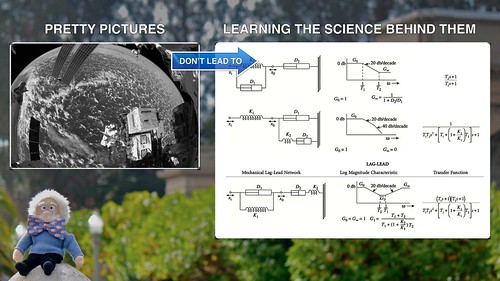Take, for example, this tweet:
Yes, it's quite obvious that the Science Channel twitterer is referring to the solar system, not the galaxy.
No. That's not true.
The announced television show itself, I'm sure will get that right. But the twitterer? I literally can't even, as the kids say. And I literally can't even... bet a cup of coffee that the twitterer understands the difference between the solar system and the galaxy --- because I have an MBA.
Yes, a Master's degree in Business Administration, and that's what tells me that it's quite likely that the twitterer has no clue about the science. First, because it was posted at midnight on Friday; second, because it's television; and third because it's on twitter.
It's not even a case of people who "love" science (as long as they don't have to learn any). It's more a case of 'we need a "communications/social media team" for this property.' (Property here refers to the Science Channel.) That's the twitter part: the team is grown as an appendage to the marketing group because that's how people in media tend to see twitter, just another channel to add to the communications mix.
And these "communication/social media team" members are recruited from communication programs and from people who are part of the influence network of those in charge of recruiting, because that's how things are done in mass media conglomerates. So that's the television part.
At midnight on a Friday, the most junior or least competent members of the team will be the ones operating the account. And those are likely to be the ones who are least likely to know the difference between galaxies and solar systems.
But the recruitment of people who know nothing about science to positions of science communication isn't the worst problem.
The worst problem is that there's no problem, not really, because:
- The audience doesn't care, overwhelmingly. They are mostly people who "love science," and even if someone points out the error, that will not change the fact that watching the Science Channel is an identity product and the brand has the word "science" in it.
- Since the audience doesn't care, the advertisers don't care either. After all, it's not like they really want a critical thinking audience for their commercials. (Remember, I have an MBA. Only few products and companies want a critical thinking audience.)
- Since the advertisers don't care, the channel management doesn't care. And most in management have no interest in science; it's a product to be sold, just like potato chips and time-share vacations.
Then, well, then that was a totally unpredictable act of

